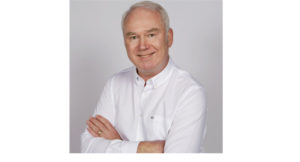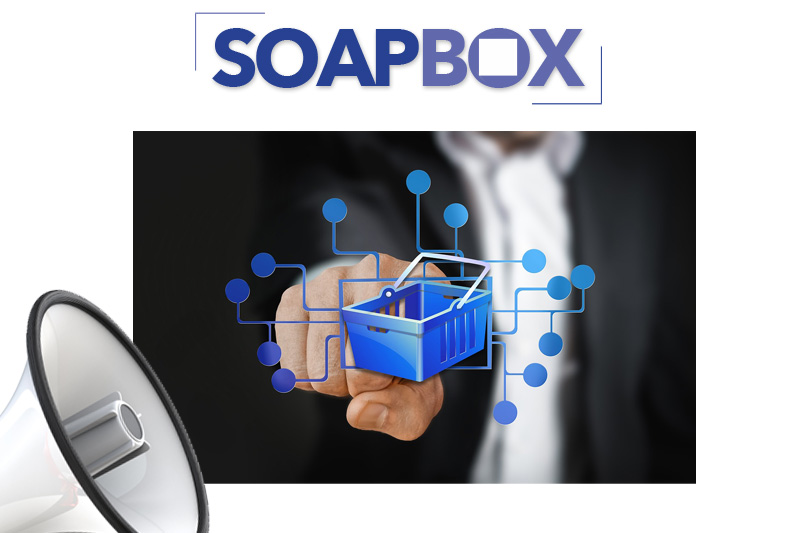In a generation of digitisation and E-data, Andy Douglas, Managing Director of Timeguard, casts his eye over the role of the wholesaler and discusses changes he has seen in the business.
Another day, another dollar: a buoyant construction market is keeping the trade busy. The outlook for electrical wholesalers looks good, according to any number of market reports. These expensive reports are of course always based on extrapolating historical data and are skewed by the hard stop of lockdown being followed by exponential ‘regrowth’. Nevertheless, and despite the challenge from Internet traders, there’s an underlying positive theme for the traditional wholesaler and distributor channel. Yet why, if installers are so busy, do we really need the middleman? Isn’t the market all pull now? Do we need wholesaler push?
For me, the answer is always going to be an unequivocal yes: and that’s not just because l’ve been around long enough to see snakes as well as ladders. The table can turn soon enough – we need to work together but we do need to keep this marriage fresh and alive. Our contribution is to secure your margins by providing superior and innovative products and by continually improving and personalising product support – we do it with real people!
Wholesalers and distributors in turn provide certainty for manufacturers because you take on the stock and the complexity of last-mile logistics. That is your strength – your decisions to stock enable us to plan production with confidence. That means we can plan confidently and invest a long time in advance of the products being sold over the counter and actually installed.
Getting products designed, tested and quality assured and then bulk shipping them half way around the world is one thing – and it’s our thing. We love doing it. However, the minutiae of understanding and predicting local demand, fulfilling individual orders, and getting products in installers vans or delivered on site is not our core skill. That’s your thing and we’re happy to support this partnership where you complete in good fashion the ‘last mile’ logistics.
Digitisation
Clearly, a key challenge in recent years has been digitisation throughout your business. In particular, I take my hat off to the EDA’s EDATA scheme which has set the bar for the product information that passes between manufacturers and wholesalers high.
We were proud to be one of the first of the mid-sized UK-based manufacturers to invest in adopting E-data standards and achieve the Gold Standard. But while E-data is undoubtedly a good thing for or own accuracy and efficiency, it’s a database. Important for you and me, yes, but of course, it’s not necessarily the be-all and end-all for installers and end users. What they want is for products to keep getting better and to have swift and seamless support.
Innovation
Wholesalers have broad catalogues and room and confidence to take on new products. That in turn enables us to commit to development and innovation. Between us we keep the market alive, avoiding the awful downward spiral to lowest common denominator on price and out-of-date specifications.
The channels partnership approach also enables us to be agile, picking up on success stories, and taking it on the chin when the odd idea doesn’t go down as expected. That said though, you’ll have seen how success breeds success in the evolution of our ranges: you helped us to drive the idea of modular LED lighting into the market and, when it took off, we were able to be quick to expand the range. The same has been the case with our professional Wi-Fi home control range. Win-win.
Wholesaling is of course competitive, and staying on top means responding to evolving customer expectations and that means product diversification. Building automation and smart buildings in particular offer huge growth opportunities, with rapid advances in connectivity and at the human machine interface (HMI). We look forward to big demand for the affordable and practical active energy efficiency control that Timeguard specialises in.
Support
The front line of support is now the Internet. Well-written instructions should be freely available to download, and they have to be subject to regular review and updates by the manufacturer or supplier.
Digitisation and downloads cannot do the whole job, though, especially if you want to sell higher end and more complex products. There should be access to tech teams who know the products inside out. Our helplines are staffed by people supporting the product development team – an approach made in support of installers countrywide, and keeping the volume of queries low. Guarantees and technical support are, of course, much easier to provide if you continually strive to provide high quality products.
We do recognise that many specifiers and contractors prefer to use e-PIM, a Product Information Management system developed for the electrical and construction industry, rather than EDATA. So, we also offer ePIM standard datasheets available via the Timeguard website, with other website and media assets freely available on request.
Access to the Internet also means that end users are more likely to go direct to the source, rather than through their installer who, in turn, would be knocking on your door. How manufacturers deal with requests for advice or general queries and complaints ultimately reflects on you.
What do we get in return? We win space at your wholesale counter, the traditional town square of the electrical trade where fat is chewed, products are poked and prodded, and performance is recommended (or not). It is as ever thus, and long may it remain so.

For more information, click here





